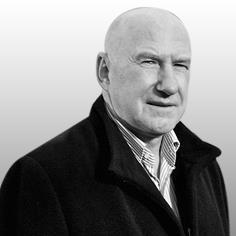Pooran Desi’s blog confronts the realities of sustainability


Anything that Pooran says is worth listening to and is all right by me.
He’s my type of environmentalist; passionate, a clear big picture thinker, not afraid to put his money where his mouth is and he rushes around the place in a highly impractical bio-fuelled sports car. He has style.
In this article he points out that we are all guilty (including him) of some over optimism and even some double standards.
Cameron encourages offshore wind – and fracking. While Pooran lives the low energy life, and jets off to Africa.
Jack Pringle is principal, managing director EMEA at Pringle Brandon Perkins + Will
![]()
Watch your optimism
Originally published 25 February 2014 | By Pooran Desai

Revelations or Genesis? Take your pick. The world feels full of contradictory signals. At their height, the floods across the south of England created a sense of apocalypse. When we see weather catastrophes in far-off places such as the Philippines, we may be moved. When the chaos and suffering are in our own backyard, in a rich developed country, it is altogether more unnerving and biblical references come to mind.
On the other hand, listening to so many businesses now talking of reinventing themselves, we could easily feel we are experiencing the genesis of a new clean world and that “clean tech”, or now the “circular economy”, will be our saviour.
For most of us, our world view depends not so much on facts as our psychological make-up. Our predicament is real. Long time lags mean that the climate change we are experiencing today can be attributed to carbon dioxide released in the atmosphere in the seventies.
Since then, we have released gigatonnes more CO2 and other greenhouse gases into the atmosphere. What might we experience in the next five years, let alone the next 40?
Our propensity for optimism means we don’t like hearing some things. Which is why the IPCC reports on climate change are much more conservative than many scientists believe is justified. Arguably, even the Stern Review of the economics of climate change was optimistic - with some scenarios, for example, based on China’s greenhouse gas emissions peaking in 2017. I leave it to you to make your decision on the chances of that.
A recent article by Financial Times columnist Robert Harding points out that “models of climate change all but assume it cannot have a huge effect on the economy, no matter how bad global warming becomes”.
We need to be fully aware when we are basing predictions and scenarios on what we think is acceptable to politicians and society, or what we believe is achievable, rather than what needs to be done. Otherwise we are hoodwinking ourselves.
We are like a smoker cutting down from 40 to 35 a day and hoping for a miracle cure if that doesn’t work
I am going to suggest something which is unpopular if not downright taboo: we must remain distrustful of our own optimism. Psychologists have quantified an optimism bias which demonstrates that humans are, on average, more optimistic than reality tells us we should be. Most of us who drive think we are better than average drivers, when only half of us actually can be. CEOs and leaders generally are some of the worst offenders when it comes to this optimism bias.
So, with climate change, we are like a smoker cutting down from 40 to 35 a day and hoping for a miracle cure if that doesn’t work. We probably cannot afford to add one more carbon dioxide molecule to the stock of greenhouse gases in the atmosphere. Yet every advance in clean technology is being matched by one in the fossil fuel industry, improving our ability to exploit coal, oil and gas reserves.
Who would have predicted the impact, or even heard, of fracking 10 years ago? Now we are starting to read about the enormous and cheap fossil fuel reserves we could unlock through frozen oceanic methane and underground coal gasification.
The optimistic view might be that these are, respectively, cleaner than coal or can be linked to carbon capture and storage. So it is that one of the big dangers we face at the moment is backing green at the same time as pumping out brown.
We see this all around us. Prime minister David Cameron reaffirms his belief in man-made climate change while backing fracking in the UK. We build increasingly energy-efficient homes - but some of them still go up on floodplains and valuable farmland. Developers continue to use high-embodied carbon concrete in most projects while using low-carbon cement replacement in a token few. Car makers are starting to manufacture electric vehicles while still selling gas-guzzling SUVs.
Optimistically (as ever) we can see this contradiction as part of a transition, but we must also be much more honest at a personal level about the balance of green versus brown in our own lives and businesses. Everything can be wrapped in the language of win:win, but this is rhetoric, not reality.
So am I optimistic? I am writing this sitting in a lounge in a well-insulated, energy-efficient home, part-powered by renewable energy with a car club vehicle outside my front door, in the still exemplary BedZED eco-village. I will shortly be booking a flight to Africa where I am doing some work. My life expresses some of the same contradictions.
The next 10 years are going to be hugely exciting and will be about how far and how quickly we tip the balance from brown to green.
Pooran Desai is co-founder of BioRegional




























No comments yet